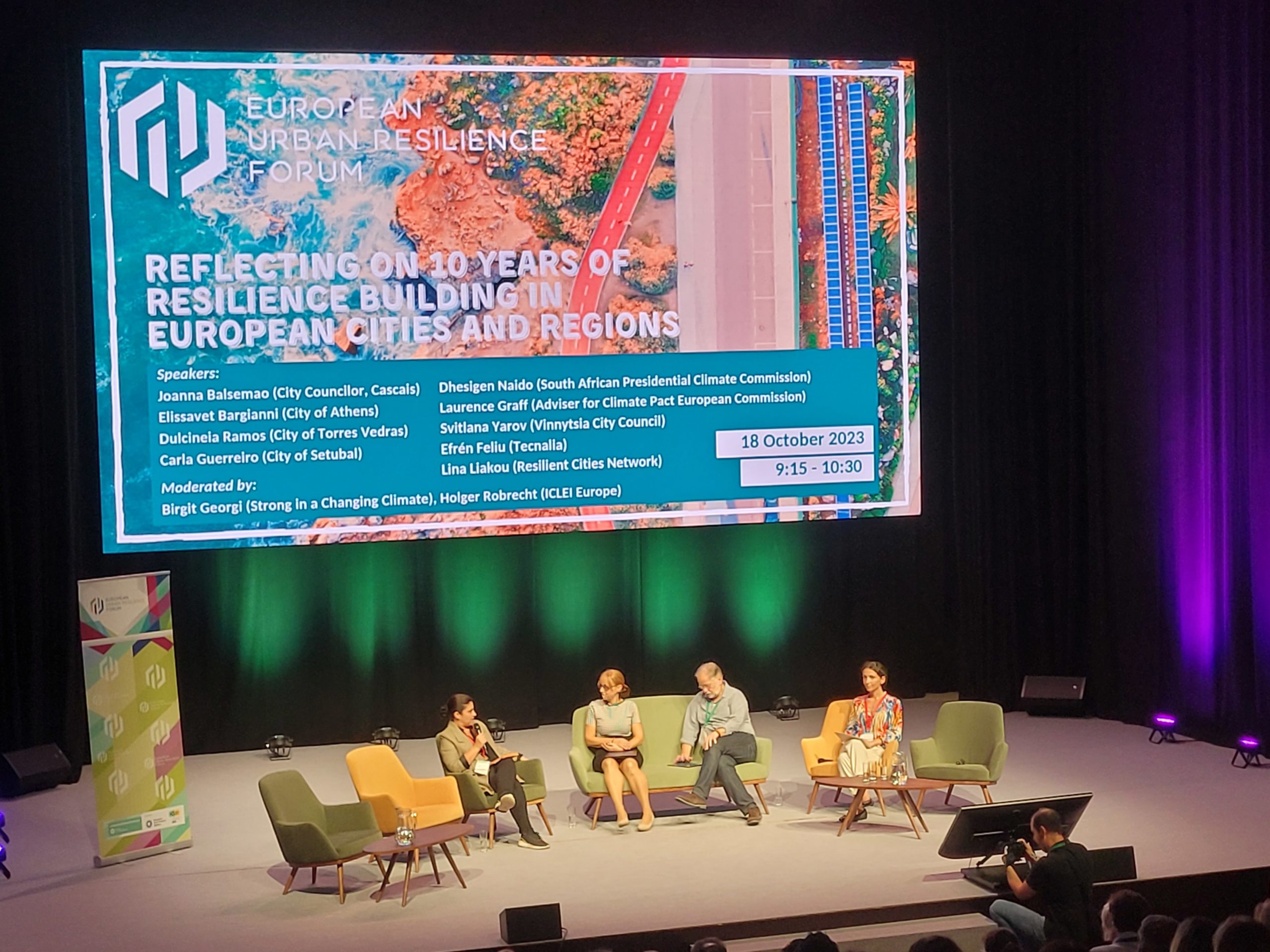The RESIST project, represented by Intermunicipal Community of the Region of Coimbra (CIM-RC) and INOVA+, attended the 10th European Urban Resilience Forum (EURESFO), which took place from 18 to 20 October in Cascais, Portugal. The event was promoted by the European Environment Agency (EEA), ICLEI Local Governments for Sustainability and co-organised with Cascais City Council.
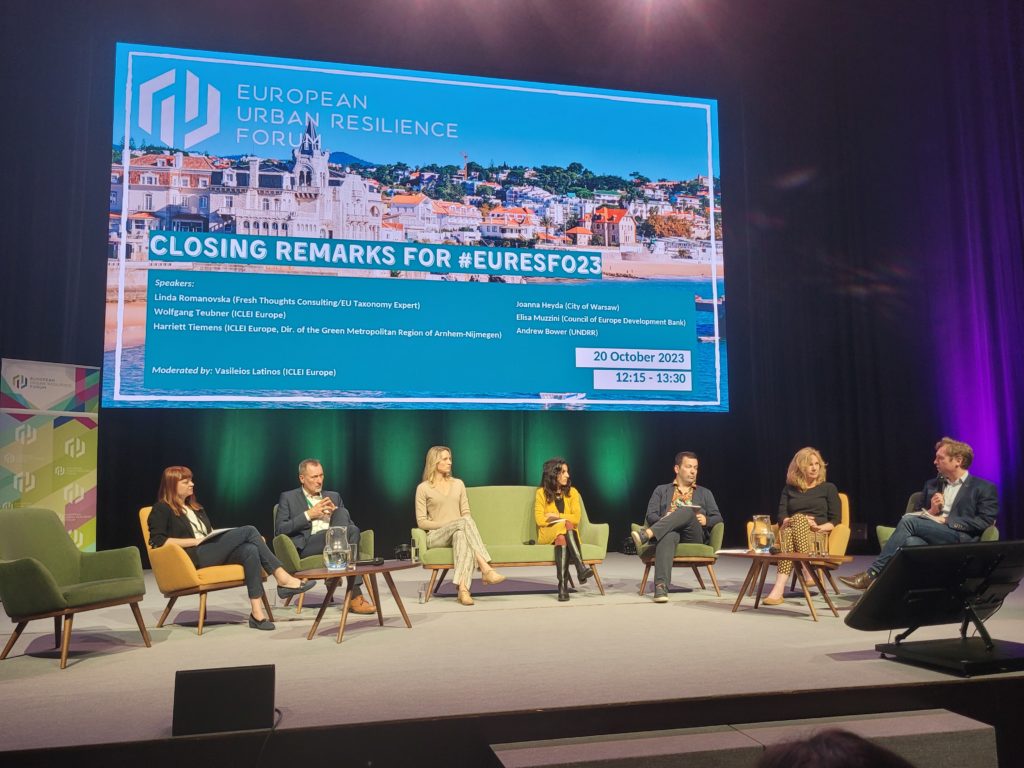
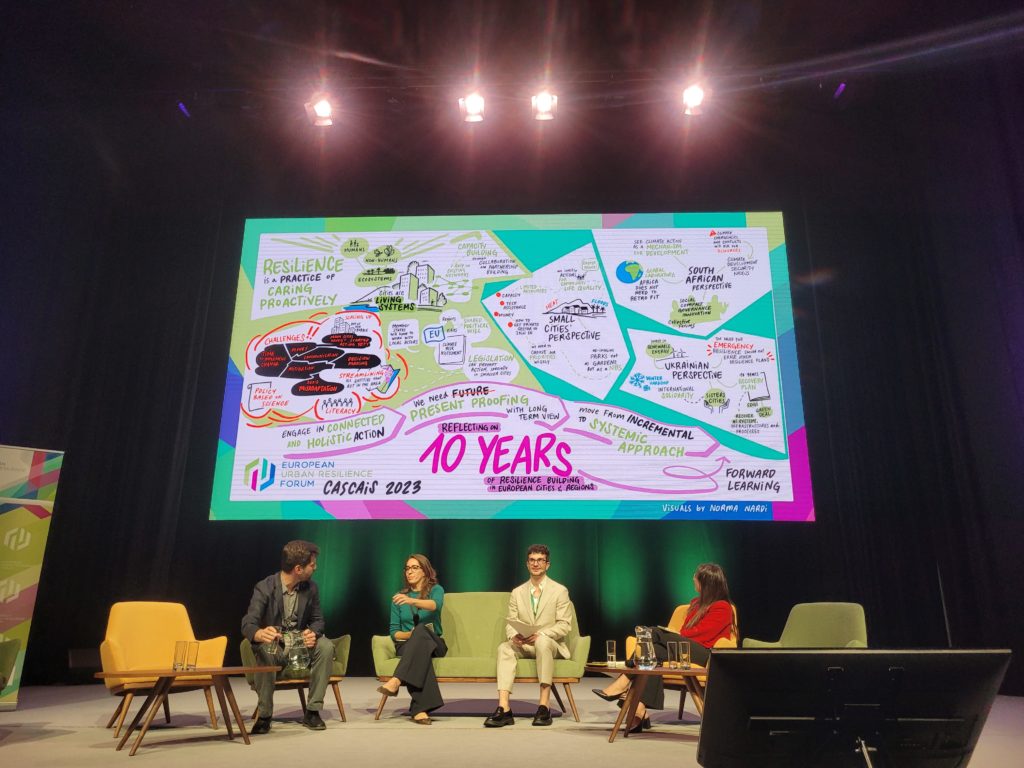
EURESFO 2023 gathered along the three days over 350 Resilience-makers, Resilience innovators, Resilience providers and Resilience supporters. Participants from 44 countries jointly discussed the latest developments and shared experiences, seeking to shape a climate-resilient future for cities and regions in Europe and beyond.
The event’s programme focused on three main thematic streams:
- The governance of new crises: managing and financing resilience in Europe
- Challenging knowledge and innovation: accelerating a resilient and just transformation
- Mainstreaming solutions for a just transformative pathway: an integrated approach to resilience
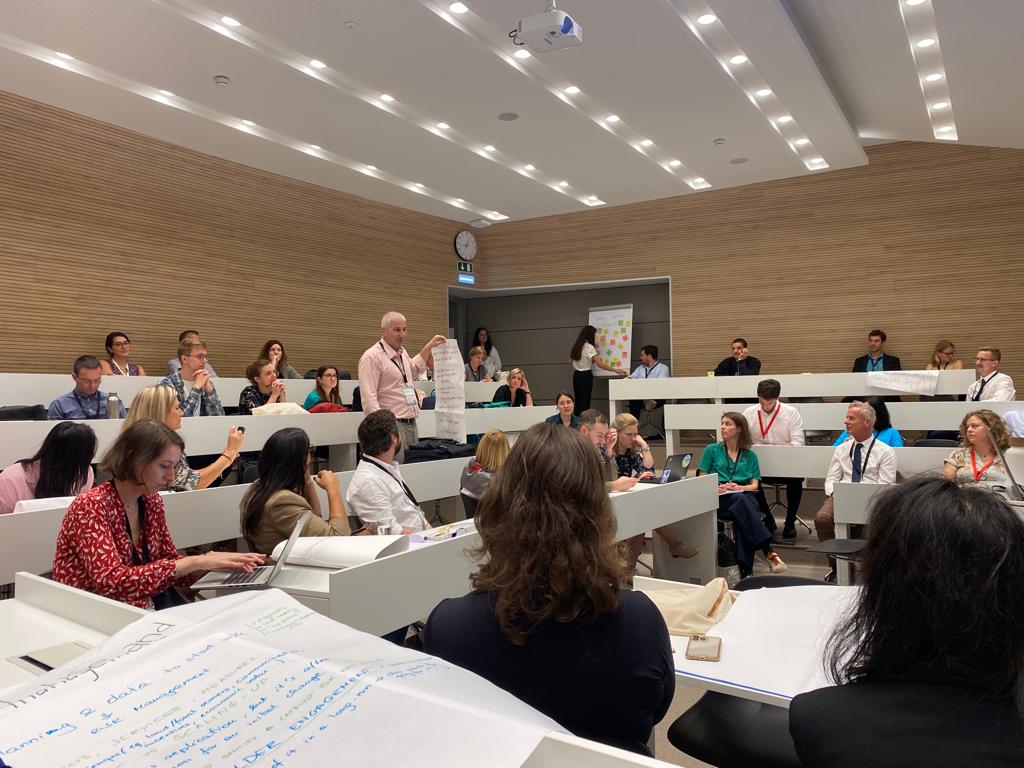
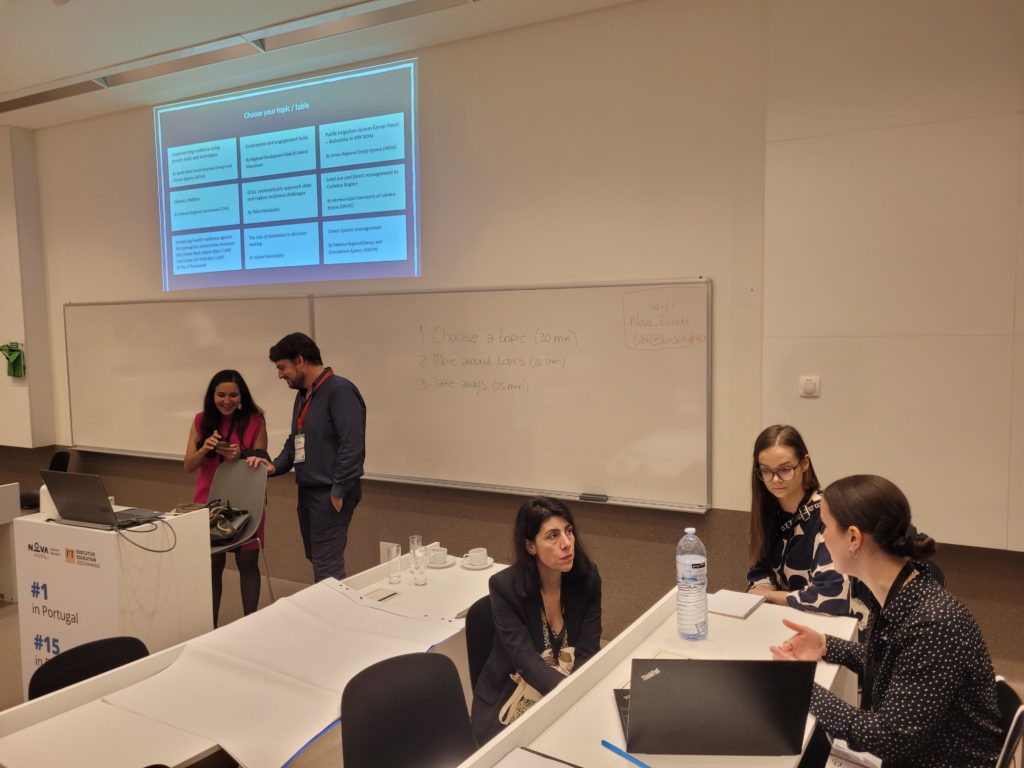
The session in which RESIST was most actively involved fell under the second stream, with the main question ‘How can innovations in resilience services, information, data and digitalisation developed over the past decade effectively support cities and regions in their resilience journey towards 2030 and beyond’? As the Mission on Adaptation aims to support European regions and local communities in their efforts to build resilience against the impacts of climate change, it is crucial to know how resilience is approached in varied contexts, and what can it mean in the future.
Following the World Café setup, 9 invited regions shared their experiences and discussed in smaller groups to understand ‘How did European regions approach resilience in the past until today? And how does the future of resilience in regions look like?’ Each participating project could propose concrete topic relevant for the region in question, and in case of RESIST the presentation from Coimbra Region was focused on ‘Land use and forest management’. The theme is very relevant in the regional context of Central Portugal, and especially the forest fires are a very challenging issue, hence addressed by pilot actions envisaged under RESIST. CIM-RC, supported by INOVA+, reflected on the past and the future of resilience services related to this topic, and presented not only new plans, but also some measures developed over the last years.
The presentation triggered further sharing of experiences and discussion with participants. In particular, the stakeholder engagement measures foreseen as part of RESIST activities were strongly applauded by peers. They recognised that such actions are crucial, but not always handled sufficiently, especially in large scale actions. So they praised the local community participation and engagement activities that CIM-RC has carried out under the RESIST project, and were pleased to hear Beatriz Pereira acknowledge “the importance that population has in the sustainable and joint management of forests, in order to prevent wildfires”. Appropriate risk management and importance of data and planning have been also stressed in the debate, as prerequisites for successful implementation of measures that lead to effective adaptation and increased resilience.
That was in fact one of the conclusions that echoed also in other sessions and plenaries of EURESFO – the value of scientific data and good preparation before taking action in the field, to ensure that the best methods and tools are put in place and maladaptation is avoided. We cannot afford it (maladaptation), considering that the impacts of climate change are increasing in frequency and intensity, resulting in economic losses, environmental degradation and affecting the health and well-being of people all around Europe.
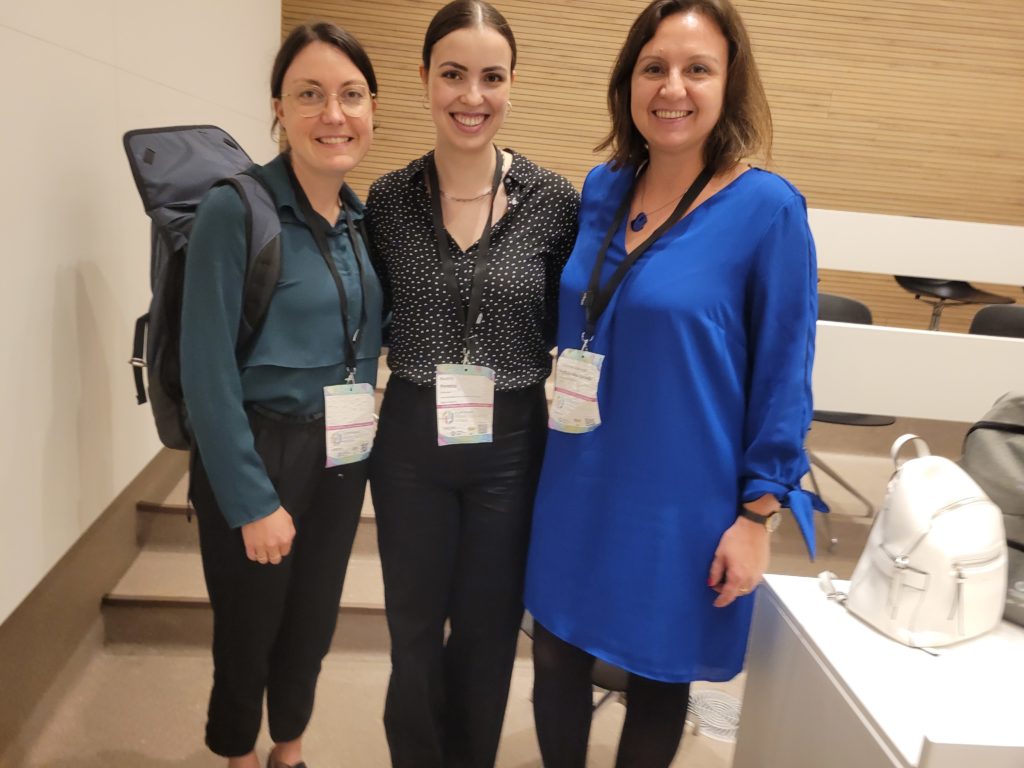
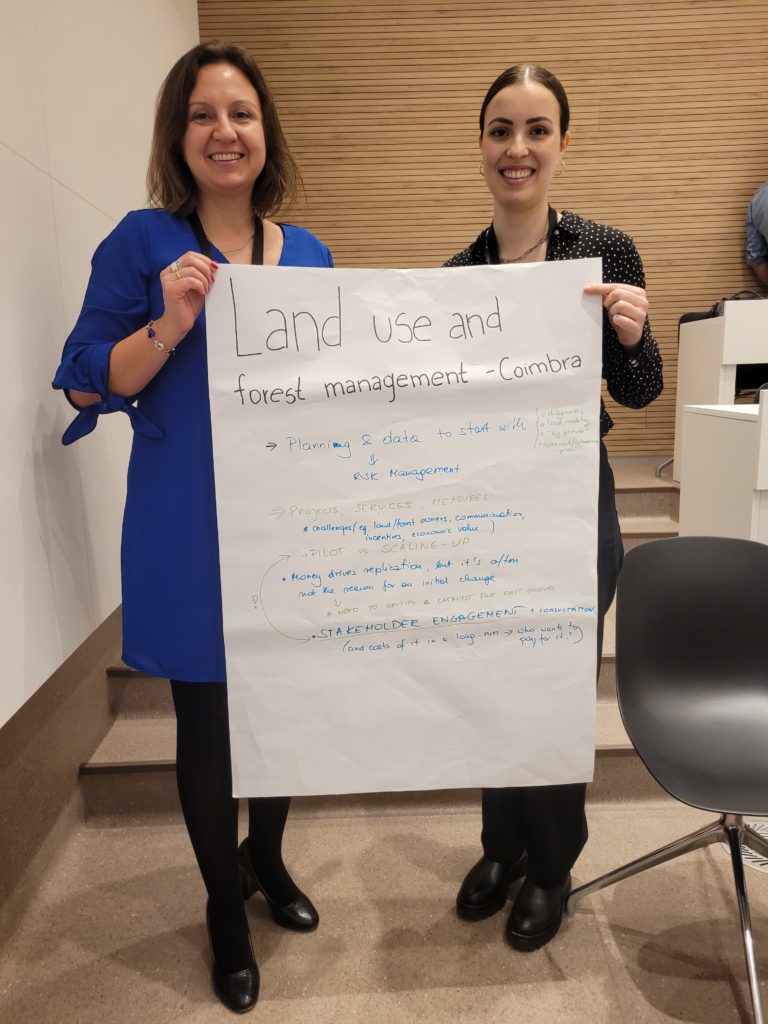
Overall, the Forum was a very informative, open and interactive event that allowed the exchange and sharing of strategies, initiatives and tools for adapting to climate change, managing disasters and building resilience. Not only resilience challenges that different cities and regions had been facing were put forward, but also new opportunities, inspirations and innovative solutions to best achieve a resilient European transformation. All cities and regions must act better and quicker in the upcoming future, and from many perspectives the RESIST regions are surely frontrunners in this adaptation race.












